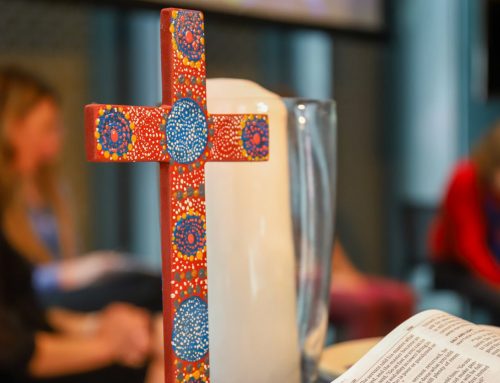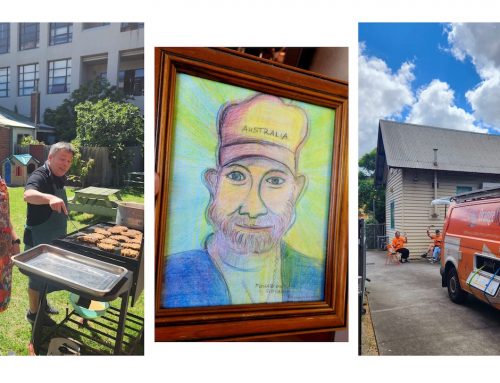In my days of being a mum with young children I struggled. I was frustrated with the slower pace and the difficulty of getting anywhere. I resented no longer being able to make decisions and act on them. I felt I had no agency or control over my life. To cope I tried to get back to some kind of ‘normal’, that is, life before children. Somehow I had missed the fact that I had changed. I was now a parent and I couldn’t go back, I could only go forward. Eventually I learnt to love and appreciate the changes that my children prompted in me, but the process of getting there, of growing into being a parent was not easy.
As we head into this time of change in our church, I find it helpful to recall this process. It will be tempting to assume that we will just keep doing what we have been doing. But if we do that, we will miss the opportunity to have two new people in our lives, Annie and Jan, both of whom have much to offer. To continue as we were, is also to miss an opportunity to grow as a faith community, as painful as that growing might be.
In becoming a mum, I had to do less of what I had been doing in order to learn how to be a mum. I was clumsy at putting on a nappy at first. It took time to learn how to feed, clothe, soothe and get to know this little baby as well as come to terms with the inevitable changes in my marriage and wider family. It took hours to get out of the house. It constantly felt like there was not enough time, because I was still trying to live my old life as well as accommodate this new life.
Andrew Root and Blair Bertrand in their book, When Church Stops Working, names this feeling of ‘not enough’ as a symptom of life in the church. We are prone to thinking that the church no longer has enough influence in society, there are not enough people to do all the things that need doing and not enough faith that the church can continue. He argues that when we have this perception, our tendency is to do more. As we get busier, we become further and further from the very thing that will sustain us. He says, “Acceleration, the busyness we feel, is a symptom of our frustrated search for meaning.”1 He suggests that instead of getting busier, we need to wait. “Waiting looks forward to something that is coming.”2 We need to wait with a ready stance for God’s action in the world.
In the early days of children, I had many voices telling me to sleep and not worry about the dishes and enjoy my kids before they grew up. I thought about the classic death bed scenario ‘if you died tomorrow what would you wish you’d spent more time doing’ to which the answer is never cleaning the bathroom. But in the moment, things are always different. We are busy because we think it gives a sense of being important, of doing something, of control. I want that as much as anyone. But often it’s temporary and we become trapped in a cycle of busyness. The question is what can this time of change offer us at BUC if we are to truly accept this invitation to new life? Are we are willing to embrace the struggle? How will we wait on our own and as a church and with the whole of creation who “waits with eager longing for the revealing of the children of God.” (Rom 8:19)
Cath James, Minister: CYYA
1 Andrew Root and Blair Bertrand, When Church Stops Working: A future for your congregation beyond more money, more programs and innovation, Brazos Press, 2023, p.31 2 p.32






Leave A Comment